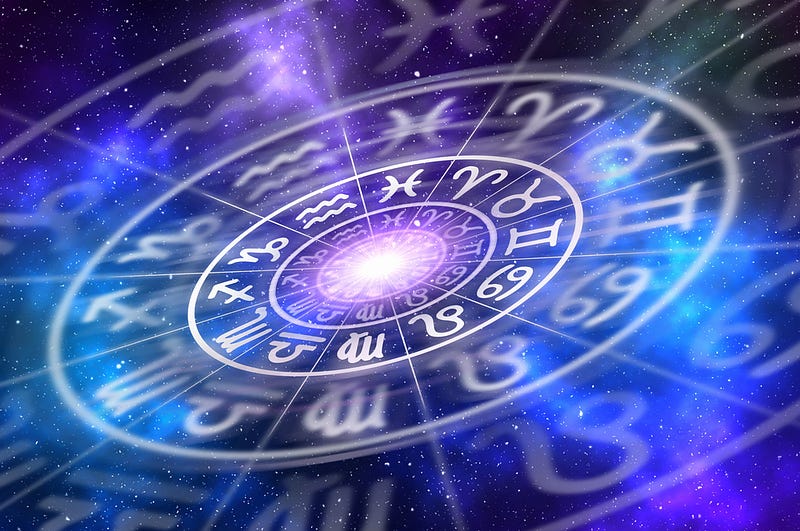Opinion: Grounded in fiction — the case against astrology
By Lucas Principe, Philosophy and Environmental Science, 2019

Astrology is certainly experiencing a renaissance in American popular culture — especially online. Ask a millennial or a Gen Z’er, the denizens of internet culture, and I bet you they’d more likely than not be able to tell you their zodiac sign. This phenomenon is by no means a new one: Astrological belief in some form can be traced back since before Common Era. Today, however, the main thread being popularized entails the provision of horoscopes, predictions, and life advice based off of the astronomical minutiae surrounding the precise date and time a person was born. It is this type of data, astrologers claim, that allows them to predict a person’s future, explain his personality traits, and help him to realize his full potential. Astrology.com even claims to be able to tell someone if “you and your love interest are meant to be,” based on birth signs alone.
It’s easy to laugh at that kind of nonsense from a position of skepticism. Because, of course, it’s 2019 — who could believe that this type of information could actually be predicted by the positions of the celestial bodies at birth? But you’d be surprised: According to Pew Research Center, over 29 percent of Americans did express a belief in astrology in 2017.
According to Pew Research Center, over 29 percent of Americans did express a belief in astrology in 2017.
There is no shortage of empirical research that leaves astrology floundering; some of the most famous studies on the topic include Carlson, 1985, Dean and Kelly, 2003, and Forer, 1949. However, one study in particular does a wonderfully simple job at deflating the practice. A 1990 study conducted out of Indiana University Bloomington asked six “expert” astrologers to correctly identify the birth chart for 23 individuals after being provided with each subject’s life history, photograph, and score on various personality tests. The result, unsurprisingly, was that the astrologers did no better than chance or than non-astrologer control subjects at matching birth charts to personal data. Even more damningly, the astrologers generally failed to agree with one another’s predictions.
These types of tests demonstrate that astrology isn’t a science at all. And nor is it a silly, innocent belief system either. It’s an industry: one, when combined with other psychic services, that is valued by market research firm IBISWorld at over two billion dollars annually. Furthermore, as any industry, its goal is to make money — which, in the astrologer’s case, can come from birth chart analyses, personalized horoscopes, tarot readings, compatibility forecasts, and an abundance of other services grounded by nothing other than fiction.
[Astrology is] an industry: one, when combined with other psychic services, that is valued by market research firm IBISWorld at over two billion dollars annually.
All these services do, in reality, is provide scientifically inaccurate information to people seeking insight into their natures and futures. Even worse, the industry seems to relish the vulnerability of others. There is no shortage of astrological advice for people in despair. A simple Google search of wretched problems paired with the word “astrology,” such as: “my ex left me astrology,” “why am I so depressed astrology,” “why does nobody love me astrology,” or “how to pay my bills astrology,” yields endless diagnoses about how your sign has gotten you into such a situation, and how your sign can get you out of it.
I will concede that not all astrology “believers” completely adhere to the faith. I have often heard, in conversation or in eavesdropping, a dubious claim along the lines of, “I don’t really believe in astrology. It’s just fun to read my horoscope and compare with my friends,” which is usually followed by, “Why do you care if it’s not hurting anyone?” I sincerely do not doubt you if you express this sentiment too. Though, I might ask, would you also see nothing wrong with pretending to believe ideas like blood-letting, alchemy, anti-vaccination, and flat Earth?
Unfortunately, if you, as much as you may truly not believe in astrology, are simply partaking in its cultural moment because it’s “fun,” what you’re really doing is providing validation to countless charlatans throughout the world who make their money off of spreading false hope, false dread, and complete misinformation. These people may be giving vague, uncouth answers to individuals with little money who are desperate for a solution to their grim real world problems.
There have been enough con artists throughout history. Astrologists, in one way or another, just seem to be America’s new televangelists. There may always be these types in the world — those who promise fantastical information that neither dull everyday life nor rigid science could ever supply. My advice to you is simple: You have no rational reason to listen to a word they say.
Journal of Scientific Exploration (1990), “A Scientific Inquiry into the Validity of Astrology”
